Third teachers' union confirms January strike dates
- Published
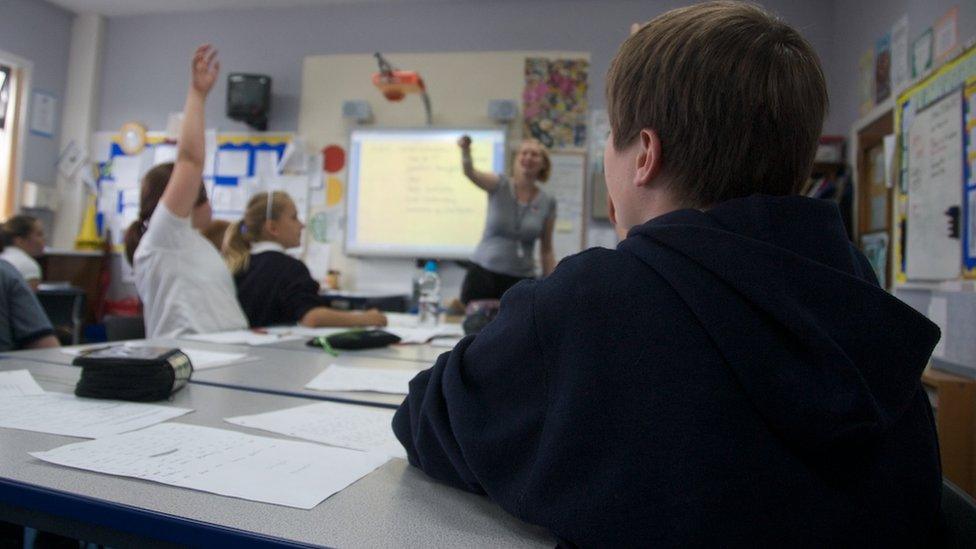
More strike dates are set for the New Year
A third teachers' union has announced plans for further strike action in the new year.
Members of the NASUWT will walk out next month in an ongoing dispute over pay.
The union confirmed primary teachers will strike on 10 January while secondary teachers will walk out on 11 January.
The Scottish government has previously said the pay demands were "not affordable".
NASWUT is calling for a fully funded pay award of 12% for 2022/23 after rejecting Cosla's improved offer, worth up to 6.85%.
It said the current pay offer tabled amounts to a real-terms pay cut, as inflation reached 10.7% in November.
The Educational Institute of Scotland (EIS) has already announced national strikes on 10 and 11 January followed by 16 consecutive days of action - split across every council in the country - beginning the following week.
The SSTA union will be striking in secondaries on 11 January.
As all three unions will be taking part in the action, widespread school closures across Scotland are inevitable.
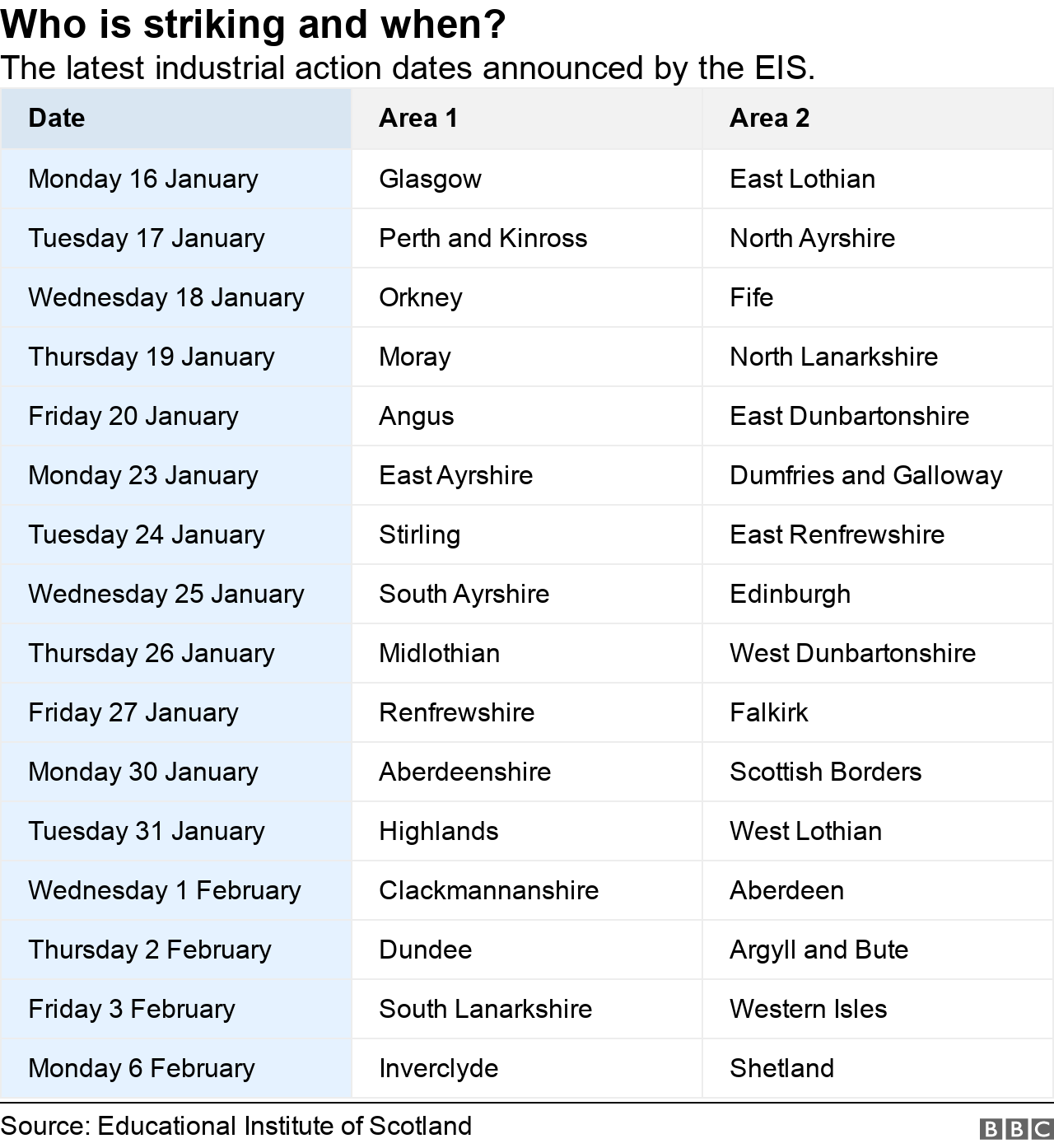
Dr Patrick Roach, NASUWT general secretary said: "We have been left with no choice but to call two further days of national strike action as a result of the failure of ministers and Cosla to offer an improved pay offer.
"At a time when teachers are facing the biggest squeeze on their finances in a generation, offering what amounts to a further real-terms pay cut is simply not good enough.
"Our members are not prepared to stand by while their pay dwindles and their living costs rise."
He added the dispute would only end when a "substantially improved pay offer" was put on the table.
'Critical job'
Mike Corbett, the union's national official Scotland, said: "Members are determined to continue with our campaign of industrial action and will stand together with teachers in other unions to send a united message to the Scottish government and employers that they deserve a fair pay settlement.
"Teaching is a critical job and one that is uniquely and increasingly challenging.
"Teachers just want pay levels that reflect the years of training they have undertaken, the high level of workload involved and the skill involved in meeting the needs of all pupils."
Mr Corbett added his members wanted salaries that both enabled experienced teachers to remain in the profession and encouraged new entrants to join.


The NASUWT's new strike dates mean widespread school closures are now certain unless the teachers' pay offer is improved.
The EIS - which represents 80% of teachers - was already due to go on strike on 10 and 11 January. The SSTA, which represents some secondary teachers, had announced a strike on the 11th.
The unions appear to have concluded that co-ordinated action is most effective.
It also ensures there is no risk of teachers in one union feeling pressurised to work while their colleagues in another are striking.
But is there any possibility of the pay dispute being resolved by then?
Last week, the first minister defended the current offer which is worth between 5% and 6.85% for teachers on the main pay scale.
Apart from the question of affordability, some would also highlight the question of fairness to other council workers.
The teachers' pay offer is broadly equivalent to the offer accepted by others employed by councils - including janitors and school catering staff - earlier in the autumn.
In general though, when one union advances the case for its own members it is not suggesting that it wants a poorer deal for others.
Were a higher pay rise to be awarded to teachers, it would almost certainly be considered by the council unions when they submit their next pay claim.
- Published9 December 2022
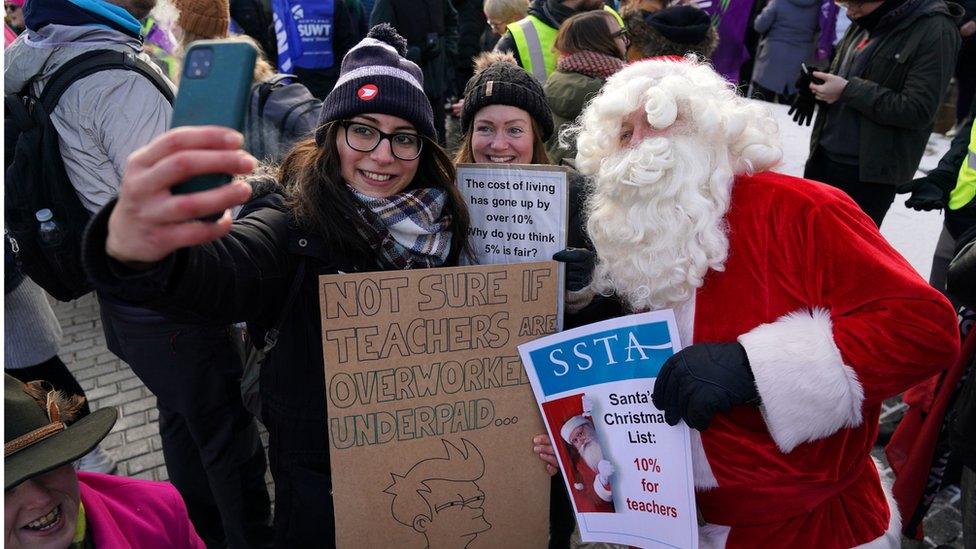
- Published7 December 2022
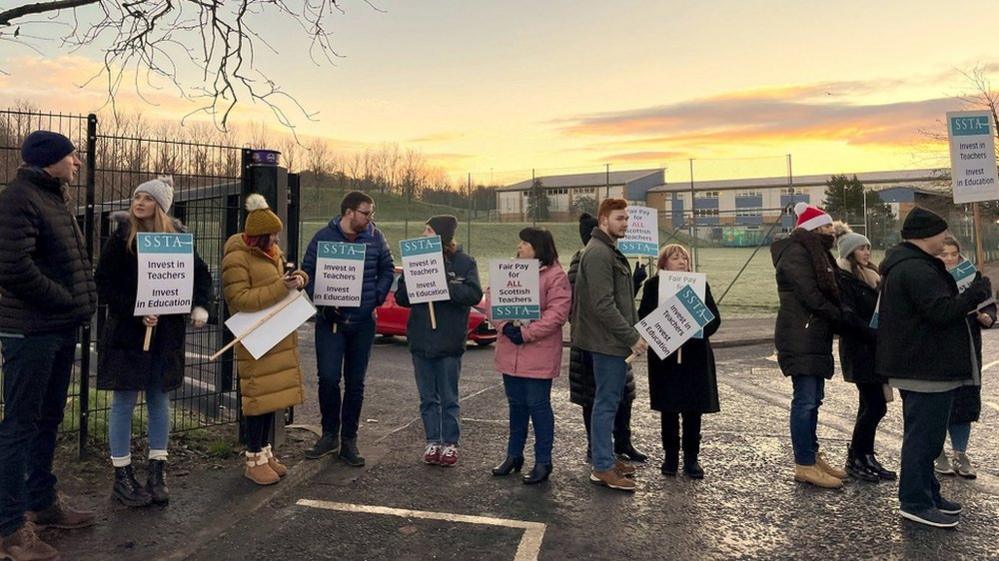
- Published25 November 2022
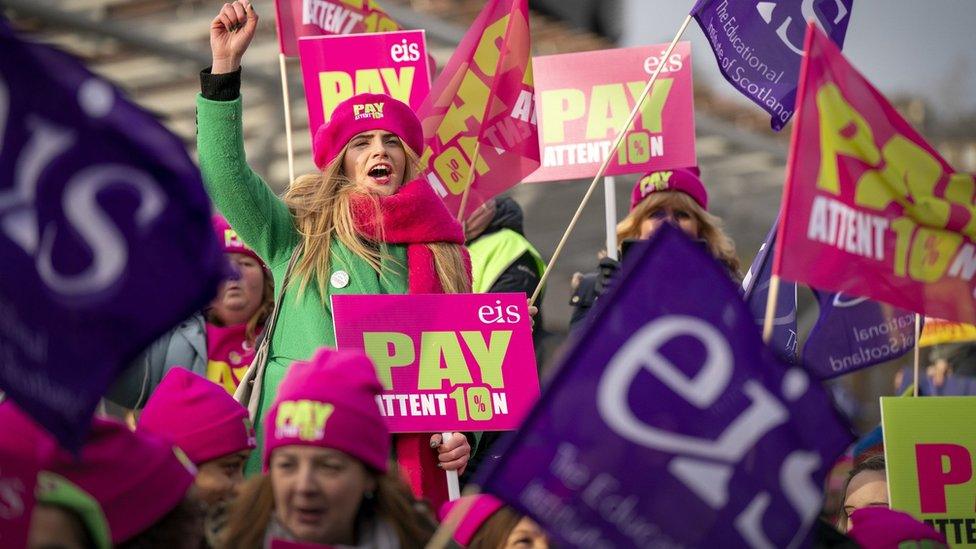
- Published22 November 2022
